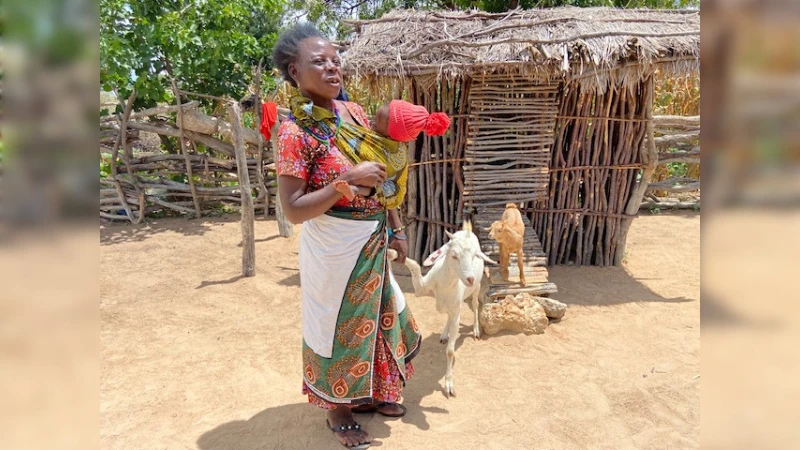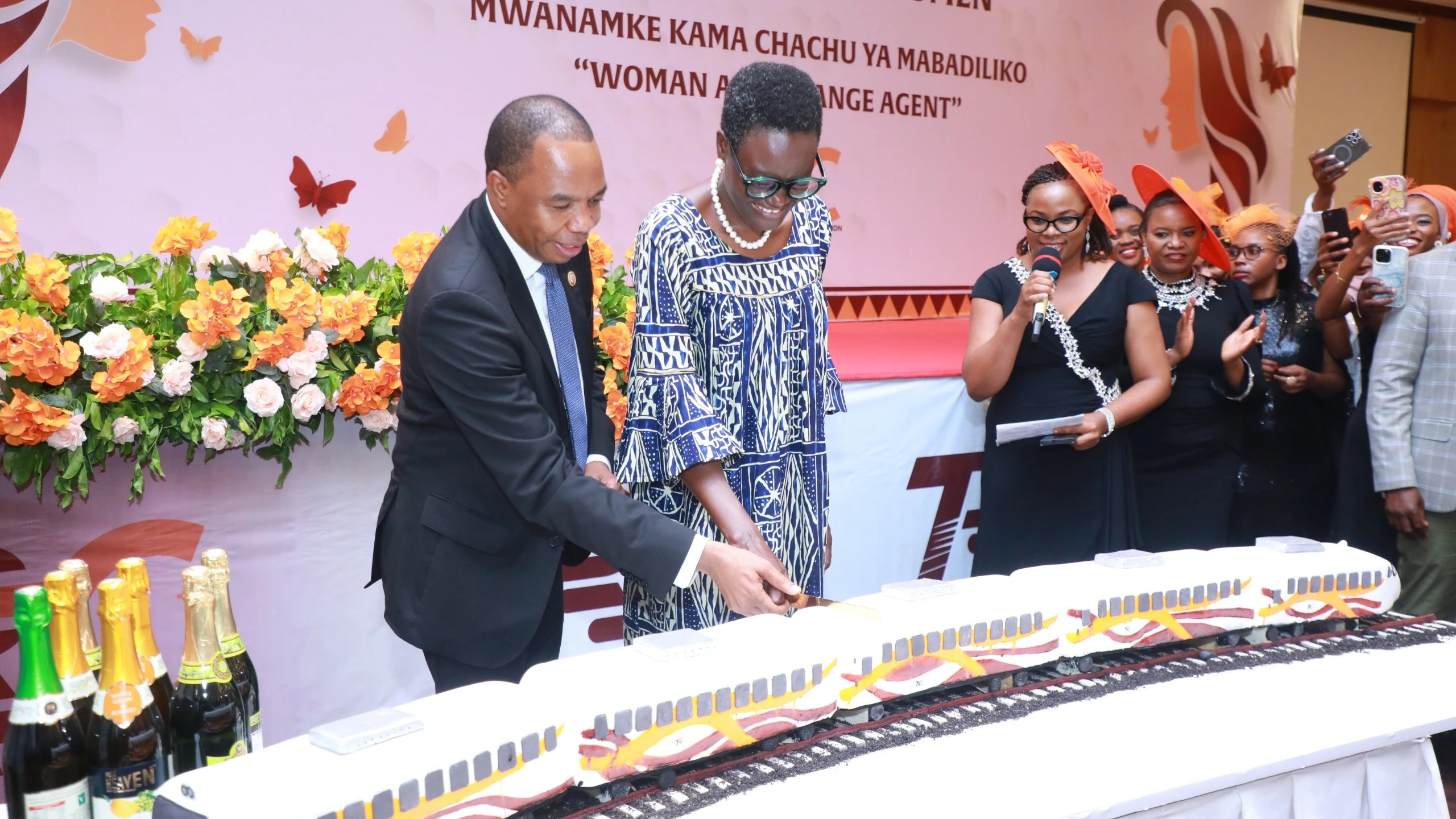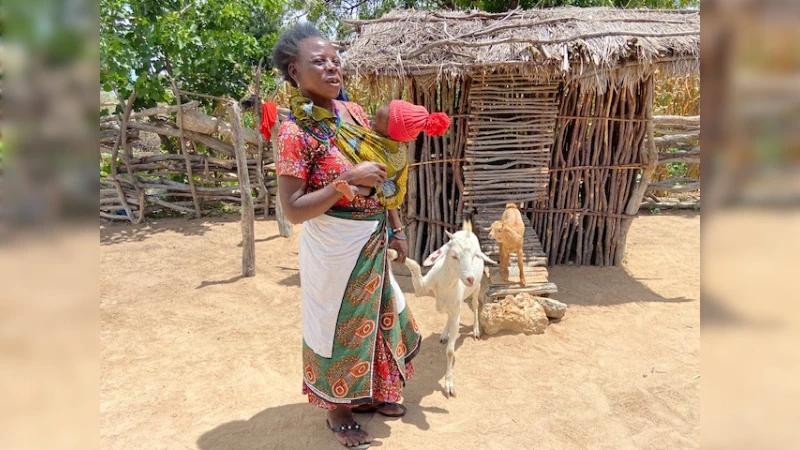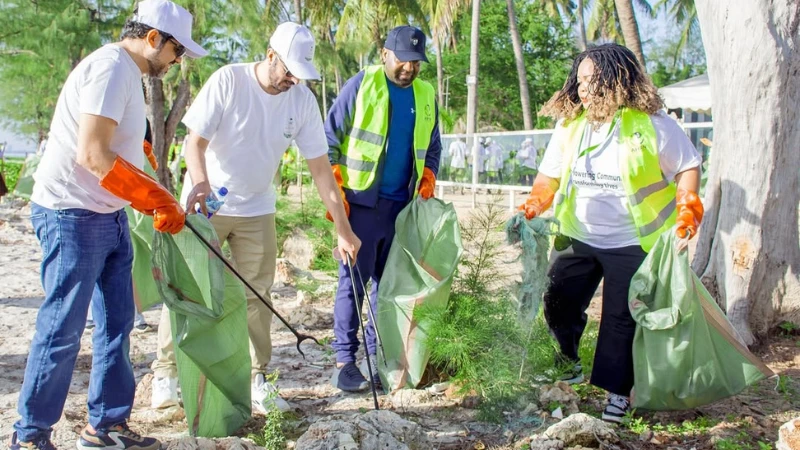Government, stakeholders join hands to address stunting, malnutrition in Bahi, Chamwino districts

THE 2022 Demographic and Health Survey (TDHS) show that Dodoma Region has one of Tanzania’s highest stunting rates (over 34 percent in some districts.
Stunting in children under five is a major public health challenge in Dodoma due to a combination of nutritional, socioeconomic and environmental factors as families rely on staple foods such as maize and cassava which are insufficient in protein, vitamins and minerals.
Stunting impairs cognitive development, reduces school performance, and perpetuates poverty. Both, stunting and malnutrition disproportionately affect marginalized communities, exacerbating social and economic inequalities.
Malnutrition perpetuates a cycle of poverty and poor health across generations, as stunted mothers are more likely to give birth to stunted children. Malnutrition during children’s critical growth periods can lead to irreversible cognitive deficits, affecting learning and educational outcomes.
Malnutrition-related illnesses lead to higher healthcare expenditures for individuals and governments.
Having realized that Save the Children with support from Save the Children South Korea introduced a three-year project—‘Lishe Yangu Maisha Yangu’ project, targeting to improve nutrition status of pregnant women, lactating caregivers and children under-five years. It is implemented in 58 wards in the two districts.
The Project’s Programme Manager and Nutrition Coordinator, Mariam Mwita told The Guardian that Bahi District has 22 wards and 59 villages while Chamwino District has 36 wards and 107 villages. Beneficiaries include 7466 caregivers, 8,915 children, 884 pregnant women and 1,449 lactating women.
Mwita said stunting is defined as low height for age, affects physical growth and can lead to long-term health issues, including chronic diseases.
“Adults who were stunted as children often have lower productivity and earning potential, contributing to a cycle of poverty,” she said, adding that malnutrition weakens the immune system, increases vulnerability to infections and diseases, which can be fatal, especially in children.
The programme focuses on the first 1,000 days—from pregnancy to age two—a critical period to prevent irreversible stunting. So far, 60 percent of the targeted population has been reached and more than 600 pregnant women out of 884 have benefitted. The number includes 900 lactating women out of 1,449 and 5,000 out of 7,466.
She stated that they are making good progress, having already covered half of the project’s implementation period.
“We visit each village and every household with children under five. We also work with health centres offering maternal and child health services,” she said.
The goal is to ensure that when pregnant or lactating women visit these centres, they receive nutrition education from trained experts on appropriate foods for themselves and their children.
“We also work with community promoters whose primary role is to mobilize communities to adopt recommended nutritional practices. The aim to increase the proportion of women of reproductive age consuming a diet that meets the minimum acceptable diversity and increase the number of children aged between 6 and 23 months to ensure they receive nutrient meals,” she added.
The project seeks to enhance food and nutrition security and community income levels. This includes increasing access to diverse, safe, and nutritious foods, and income from both crop and livestock production, along with promoting breastfeeding and timely introduction of complementary foods.
Save the Children International’s comprehensive strategy against stunting and malnutrition integrates nutrition education, maternal health support, and sustainable food solutions like goat-rearing.
Their approach aligns with national priorities and supports Tanzania’s National Multisectoral Nutrition Action Plan (NMNAP), which targets reducing stunting to 28 percent by 2025.
To make stunting and malnutrition a thing of the past in Dodoma, Save the Children has distributed milk goats and seeds for vegetables and fruits.
Goat milk, rich in essential nutrients, is improving children’s health, especially in drought-prone areas. Families receiving goats also attend nutrition training, making the programme more sustainable than food aid.
Goats require less water and space than cattle, making them ideal for drought-prone areas like Dodoma.
Mwita noted that by the end of the project in 2026, about 1,400 goats will have been distributed.
Tanzania’s national policy landscape supports this initiative. The National Multisectoral Nutrition Action Plan (NMNAP) 2021/22–2025/26 aims to reduce stunting from 34 percent (TDHS 2015–16) to 28 percent by 2025 and 15 percent by 2030.
The Tanzania National Nutrition Strategy (2021–2026) focuses on maternal and child health, particularly in the first 1,000 days of life.
The 2016 Food and Nutrition Policy seek to eliminate all forms of malnutrition, including stunting.
Key interventions include support for smallholder farmers to cultivate diverse crops, school feeding programs that provide fortified meals, and mandatory food fortification such as iodized salt and enriched flour.
Bahi Acting District Executive Director, Boniphace Wilson applauded Save the Children for aligning with President Samia Suluhu Hassan’s agenda to eliminate all forms of malnutrition, including stunting.
He urged beneficiaries to take care of the goats properly, as they are crucial in tackling the severe challenge of malnutrition and stunting.
Jesca Musa, 47, from Mbande Street in Chonde Ward, Bahi District, expressed her gratitude: “Goat milk has greatly improved my children’s health and growth. They were previously suffering from stunting and malnutrition.”
Musa also appealed to the government and stakeholders to continue providing them with nutrition education to combat the widespread impact of malnutrition.
Leah Gideon, the officer in charge at Chonde dispensary said: “Milk goats have had a positive impact on the health of many children from vulnerable families in our community.”
She added: “We have been educating pregnant and lactating mothers on breastfeeding exclusively for the first six months. Complementary feeding is introduced at six months to reduce the risk of malnutrition.”
In Tanzania, 89 percent of children aged 6–8 months are given solid, semi-solid, or soft foods.
The World Health Organization (WHO) recommends exclusive breastfeeding for the first six months of life. Dodoma is one of the poorest regions in Tanzania, where many families struggle to afford a balanced diet. Erratic rainfall and frequent droughts severely affect agriculture, worsening food shortages.
Tackling stunting and malnutrition requires a holistic approach—improving food security, access to healthcare, and promoting widespread nutrition education.
The long-term benefits include healthier individuals and more prosperous communities.
Top Headlines
© 2025 IPPMEDIA.COM. ALL RIGHTS RESERVED

























